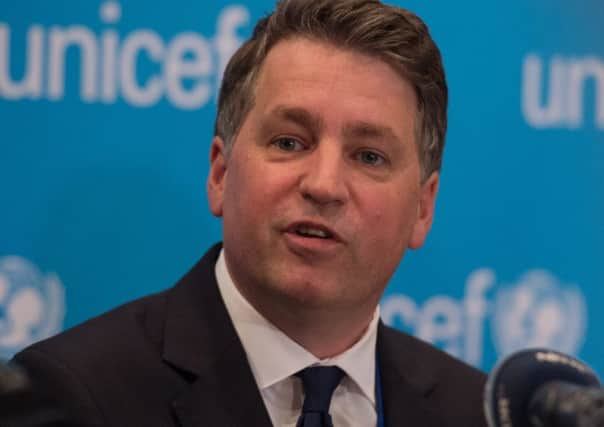Charity chief '˜tried to have TV report watered down'


A phone conversation between the controversial former charity executive and a BBC reporter who was seeking a response to a story critical of Save the Children, reveals Forsyth had been speaking to senior executives at the BBC in an effort to present the story in a way favourable to the charity.
In the recording Forsyth, when asked for a comment about Save the Children’s investment practices, says: “I’ve also spoken to other people at the BBC and they’ve told me a way that they want to handle this, so maybe you should talk to them too.”
Advertisement
Hide AdAdvertisement
Hide AdWhen the reporter asks who at the BBC Forsyth had been having conversations with, Forsyth says “I’m literally about to go into a funeral” and hangs up.
Forsyth, 52, quit his role as deputy executive director of Unicef after allegations emerged of inappropriate behaviour towards female employees at Save the Children, where he was chief executive from 2010 to 2016.
Brie O’Keefe, a former Save the Children adviser, told Newsnight that Forsyth’s tenure at Save the Children meant “certain toxic leadership behaviours were tolerated”.
The much-delayed Panorama programme, broadcast in December 2013, had been intended to be critical of Save the Children’s links to corporate donors.
The Panorama team had sent numerous requests for a response to their story to the Save the Children press office, but had received no reply.
A BBC reporter was then tasked with calling Forsyth. After receiving the unsatisfactory reply, a producer for Panorama told the Press Association that it was decided to confront Forsyth outside the Save the Children offices.
The filming took place, but it is understood the then head of news at the BBC, James Harding, ordered that the segment be cut. The producer said he believed Forsyth pulled strings with Harding to have the section removed.
“Despite his warm words on transparency, Forsyth was clearly using his media contacts to block legitimate criticism. The sad thing is the BBC high command succumbed to his interference,” the producer said.
Advertisement
Hide AdAdvertisement
Hide AdHe added: “We filmed an embarrassing doorstep sequence of Forsyth floundering outside his office, but Harding insisted this was cut, and we had to insert additional positive content about Save the Children.
“In the year of Panorama’s 60th anniversary, the BBC’s flagship current affairs programme ran more like an advert for the charity than a critique.”
The producer also said the final version of the Panorama programme was watered down at the last minute to make Save the Children appear more favourable.
Another edit that Harding was said to have insisted on was a quote about pharmaceutical firm GSK.
The 30-second Forsyth quote name-checked GSK and said millions of children’s lives could be saved by Save the Children using a GSK gel to stop neonatal sepsis.
Harding declined to comment, but a BBC spokeswoman said: “We stand by our journalism, which upholds the BBC’s editorial values; we examined the evidence, ensured a robust investigation of the issues, and then broadcast the resulting programme.”
Forsyth said: “Panorama ran a programme questioning Save the Children’s partnership with GSK. This partnership aimed to save one million children’s lives including through GSK pioneering R&D to transform a mouthwash they produced into a gel to stop millions of babies dying of neo natal sepsis – an infection of their umbilical cord at birth.”